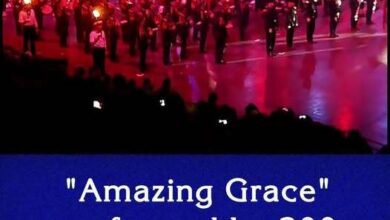What an underrated artist! I would be ecstatic to witness Garth and Scotty perform this song as a duet!
“Seven Spanish Angels” is a notable entry in Willie Nelson’s extensive catalog, having become synonymous with both his and Ray Charles’s artistry. Released in 1984 as part of Nelson’s album “Half Nelson,” the song exemplifies a cross-genre blend that has garnered widespread acclaim. The collaboration between Nelson, a country music icon, and Charles, a soul music legend, generated a unique sound that resonates with fans across multiple musical backgrounds. Their partnership is one of the many highlights in the landscape of 20th-century music, where boundaries between genres were often blurred in creative ways.
At its core, the song unfolds a poignant narrative that grapples with themes of love, sacrifice, and tragic fate. The lyrical story revolves around a couple embroiled in a desperate situation, drawing listeners into a world where passion meets peril. The mention of “seven Spanish angels” not only serves as a metaphorical device but also ties the narrative to a sense of spirituality, inviting listeners to ponder on the unseen forces that influence human destiny. This storytelling quality is a hallmark of Willie Nelson’s songwriting, which often reflects deeper human experiences, making his work relatable and impactful.
Willie Nelson’s contribution to “Seven Spanish Angels” extends beyond his vocal performance; his guitar work creates an atmosphere that complements the gravity of the lyrics. Nelson’s guitar playing, characterized by a fluid fingerpicking style and subtle harmonics, enhances the song’s emotional weight. This instrumental backdrop provides a rich soundscape for both singers to navigate through the song’s dramatic turns, elevating the narrative and allowing listeners to feel the intensity of the moment.
Ray Charles, with his extraordinary vocal range and emotive delivery, adds a layer of soulfulness that is hard to match. His background in rhythm and blues adds a dynamic contrast to Nelson’s country roots, resulting in a performance that is both powerful and vulnerable. Their vocal interplay is a standout feature of the song, with harmonies that are carefully crafted to weave together the contrasting styles of the two artists. Together, they create a musical dialogue that speaks to the themes of the song, expressing both anguish and beauty amidst the tragedy.
The commercial success of “Seven Spanish Angels” was significant, with the track reaching number one on the country charts and being embraced by audiences nationwide. The song has left a lasting mark on Nelson’s career, reinforcing his status as a leading figure in the country music scene. The duet not only resonated with country listeners but also contributed to cross-pollination within the music industry, introducing Ray Charles’s soulful sound to a broader audience traditionally inclined toward country music.
In the years following its release, “Seven Spanish Angels” has been revisited by numerous artists who have put their spin on the song. Each cover reveals a different facet of the song’s emotional narrative, allowing it to evolve while remaining true to its roots. Artists like Trisha Yearwood and George Strait have added their unique interpretations, expanding the song’s reach and ensuring its relevance across generations. This continual reinvention in different voices speaks to the song’s universal themes.
While “Seven Spanish Angels” has enjoyed popularity, it has also sparked debate regarding its themes of violence and love. Some critics have voiced concerns about its representation of a violent narrative, suggesting that it may risk glorifying gun culture. Nevertheless, many fans appreciate the song as a deep exploration of human emotions, framing love and loss within the context of real-world struggles. It is this complexity that enhances its artistic merit, prompting discussions about morality, choice, and consequence.
Nelson’s storied career is punctuated by his distinctive style and approach to music. Born on April 29, 1933, he emerged as a key figure in the outlaw country movement of the 1970s, characterized by its focus on authentic storytelling and rebellion against commercialized music norms. His body of work includes timeless classics that reflect his personal journey and broader societal themes. This authenticity is seen clearly in “Seven Spanish Angels,” where vulnerability in songwriting collides with an arresting musical arrangement.
Equally significant, Ray Charles’s influence on popular music is undeniable. His birth date of September 23, 1930, marks the beginning of a journey that would change the sound of American music forever. Charles’s innovative blend of soulful melodies, jazz influences, and heartfelt lyrics carved a unique niche for him that defied genre classifications. His collaboration with Nelson not only exemplifies this spirit of breaking boundaries but also highlights a mutual respect between two of music’s giants.
The collaboration on “Seven Spanish Angels” serves as a reminder of the power of music to connect different cultures and genres. It underscores how songs can transcend their initial intent to tell broader stories about the human experience. As listeners, we are invited to reflect on our relationships, our struggles, and the overarching themes of love and loss that define our lives. The track remains a timeless piece that continues to resonate, proving the enduring power of storytelling through music.





